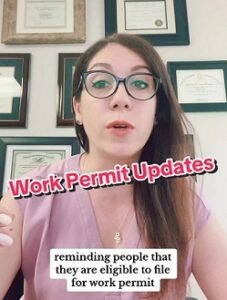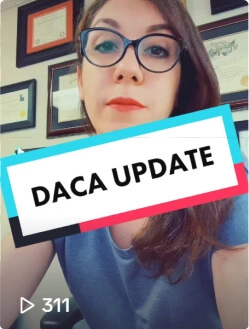Immigrating to a new country in pursuit of better opportunities and a brighter future is a dream shared by countless individuals around the world. However, the path to citizenship and naturalization is often fraught with challenges, bureaucracy, and unexpected delays.
For those who have embarked on this journey, the experience of citizenship denial or enduring lengthy delays can be disheartening and overwhelming. No one wants their dreams put on pause because of paperwork.
Our family immigration lawyers at the Law Office of Lina Baroudi will help you demystify the often complex path to citizenship and provide practical advice on managing potential roadblocks.
Understanding why applications are denied or delayed can be crucial in determining your next steps.
The Path to U.S. Citizenship: Understanding the Naturalization Process
Becoming a U.S. citizen is a significant milestone, representing a deep commitment to the values and opportunities that the United States offers.
Whether you’ve been a Permanent Resident for years or are just beginning your journey toward citizenship, here’s an overview of the process:
- Check Your Eligibility: Review the naturalization eligibility worksheet to ensure you meet the requirements for naturalization. This step is crucial in deciding if you can apply for U.S. citizenship.
- Prepare Form N-400, Application for Naturalization: You can easily access Form N-400 online. Start by creating your free online account. Read the instructions carefully to fill out the form correctly. Collect all the necessary documents that demonstrate your eligibility for naturalization.
a) If you’re residing outside the U.S., have two passport-style photos taken. - Submit Your Application and Pay Fees: You can file Form N-400 online, and you may also pay the required fees through the online portal. After submitting your application, USCIS will send you a receipt notice. Keep an eye on your case processing times and status online.
- Attend Your Biometrics Appointment: If required, USCIS will send you an appointment notice for biometrics. Arrive at the designated location at the scheduled time and have your biometrics taken.
- Attend the Interview: After all preliminary processes are complete, USCIS will schedule an interview to finalize your naturalization process. Ensure you report to the USCIS office at the specified date and time, and remember to bring your appointment notice with you.
- Await USCIS Decision: USCIS will send you a notice of the decision. If you filed your N-400 online, you can access the electronic notice in your account. Your application may fall into one of three categories: granted (approved), continued (requiring more evidence or documentation), or denied.
- Receive a Notice for the Oath of Allegiance: If your Form N-400 is approved, you may participate in a naturalization ceremony on the same day as your interview, if available. If not, USCIS will mail you a notification with the details of your scheduled ceremony.
- Take the Oath of Allegiance: This is a significant step. Complete the questionnaire on Form N-445, Notice of Naturalization Oath Ceremony. Report for your naturalization ceremony, check in with USCIS, surrender your Permanent Resident Card (Green Card), take the Oath of Allegiance, and receive your Certificate of Naturalization. Make sure to review the certificate for any errors before leaving the ceremony site.
Most Common Reasons For Citizenship Denials
As you navigate the complexity of the citizenship process, understanding potential hurdles is crucial. You may face rejection due to reasons such as having a criminal record, failing the naturalization test, or encountering issues with your immigration records.
Criminal Record
One of the main factors considered by immigration authorities when deciding on naturalization applications is whether or not the applicant has been involved in any criminal activities. Certain serious offenses, such as aggravated felonies, can lead to outright denial of your application.
However, even lesser offenses can still impact your eligibility. This is due to a requirement known as ‘Good Moral Character,’ where an applicant must demonstrate that they’ve been a person of good moral character for at least five years (or three years if married to a U.S. citizen) before applying for naturalization.
Failing the Naturalization Test
Failing the naturalization test can be a major setback in securing U.S. citizenship. It’s an examination that tests your understanding of the English language and knowledge of U.S. history and government, making it a significant hurdle for some applicants, especially those grappling with language barriers.
Despite your best efforts in test preparation, not everyone passes on their first attempt. Failing this test could lead to a delay in your citizenship application process or even outright denial.
The good news is you have options if you fail the naturalization test. Numerous community centers and online platforms offer these courses specifically designed for immigrants preparing for the naturalization test. Remember that you’re allowed two attempts at the test per application, so don’t lose hope if you don’t succeed on your first try.
Committing Fraud on Your Citizenship Application
Committing fraud on your citizenship application can have severe consequences. It involves intentionally providing false or misleading information in your Form N-400 application. Such fraudulent activities can encompass anything from misrepresenting your identity to concealing criminal history or immigration violations.
USCIS conducts thorough background checks to verify the accuracy of the information provided. If fraud is detected, your naturalization process will halt, and your application will likely be denied.
Not Meeting Physical Presence or Continuous Residence Requirements
Meeting the physical presence requirements is a fundamental aspect of the naturalization process. To qualify for U.S. citizenship, you must have been physically present in the U.S. for 30 months within the five-year period before applying (or 18 months within the three-year period if married to a U.S. citizen).
In addition, you must have maintained continuous residence in the United States for a specific period, usually five years for most applicants (or three years if married to a U.S. citizen). Prolonged absences or extended periods of living outside the United States can disrupt the continuity of your residence, potentially leading to a denial of your citizenship application.
If you find yourself facing citizenship denial due to issues with your immigration records that aren’t your fault, consult with an experienced immigration attorney who can help you navigate through this complex situation.
Factors That Can Delay Citizenship Applications
Dealing with citizenship delays can be a daunting task, especially when you’re facing long processing times, administrative errors, or extensive security checks. These delays aren’t always within your control and can often result from overburdened immigration systems.
However, knowing how to navigate these hurdles effectively and knowing your rights and options can significantly ease the path toward achieving your citizenship goal.
Here are some of the most prevalent reasons for citizenship delays:
- Backlog and Processing Times: USCIS (U.S. Citizenship and Immigration Services) can experience significant backlogs due to a high volume of applications. These backlogs can result in delays as your application waits its turn for processing.
- Incomplete or Incorrect Application: Submitting an incomplete or improperly filled out Form N-400 application can lead to delays. It’s crucial to follow instructions carefully and accurately.
- Missing Documents: Failure to include essential documents, such as tax returns or proof of residence, can trigger delays. USCIS often requests additional evidence, which can prolong the processing time.
- Background Checks: USCIS conducts thorough background checks, and if there are any unresolved issues or complications in your history, it can result in processing delays.
- Delays in Interview Scheduling & Appointment Delays: USCIS must schedule and coordinate interviews and biometric appointments, which can take time, especially in areas with high caseloads.
- Administrative Errors: Mistakes or administrative errors made by USCIS can also lead to processing delays. It’s essential to keep track of your case status and follow up if you suspect an error.
- Fraud Investigations: If USCIS suspects any fraud in your immigration case – even in applications previously approved, such as asylum or green card applications, your case may experience a long delay with no seeming end in sight.
While delays in the citizenship application process can be frustrating, it’s important to remain patient and proactive. Staying informed about your case status, promptly responding to USCIS requests, and seeking legal assistance if needed can help mitigate these delays and keep your journey toward U.S. citizenship on track.
What to Do After Citizenship Denial or Delay
When the door to citizenship seems stubbornly jammed, don’t lose heart. There are several legal options available that can potentially change your situation for the better.
If you are at any of these stages, it is highly advisable to seek professional legal representation.
- Appeal Procedures: If your application has been denied, you have the right to file an appeal with USCIS within 30 days of receiving the decision notice. This process often involves submitting form N-336, along with supporting documentation that proves errors in the initial assessment of your application. If your N-336 appeal is denied, then you have the option to seek “de novo” review of your application in a federal district court.
- Refiling Application: Depending on the reason for the denial, you may consider refiling your citizenship application.
- Federal Court Lawsuit: If your application has been delayed, your options to file a lawsuit depend on the posture of your case. If you have not yet been scheduled for your naturalization interview, and your application is outside of normal processing times, you may file a writ of mandamus. More commonly, if you have already attended your naturalization interview and 120 days have passed since your interview, you can file a “1447(b) lawsuit” to force USCIS to immediately make a decision on your application.
- Legal Representation: Hiring an immigration attorney from The Law Office of Lina Baroudi can significantly increase your chances of success during appeals or to challenge delays in your naturalization application process in federal court. We understand immigration laws and procedures and can provide representation during interviews or court proceedings.
The path toward achieving U.S. citizenship is complex but navigable with patience and proper guidance. If you’re experiencing issues with your citizenship application, contact The Law Office of Lina Baroudi today.















